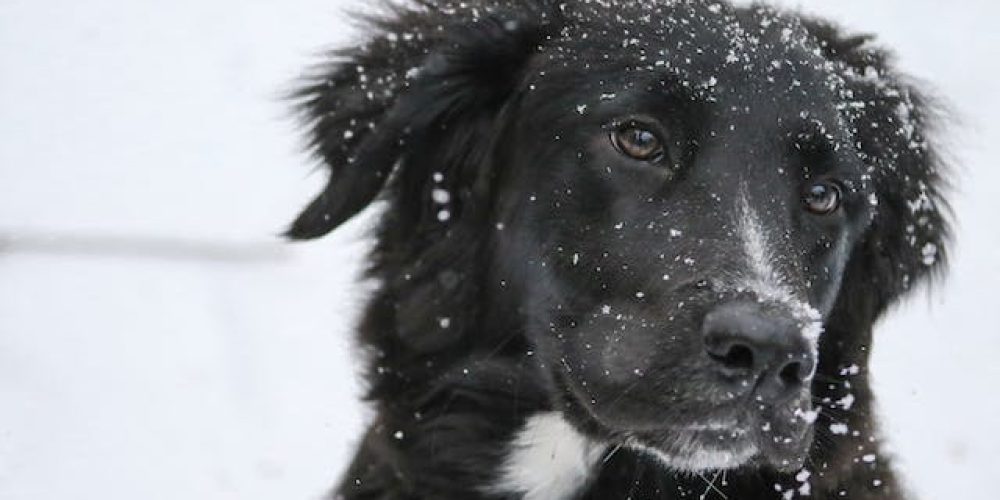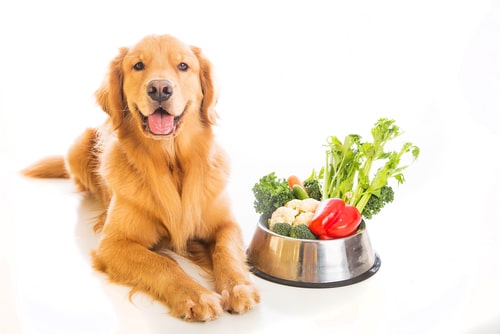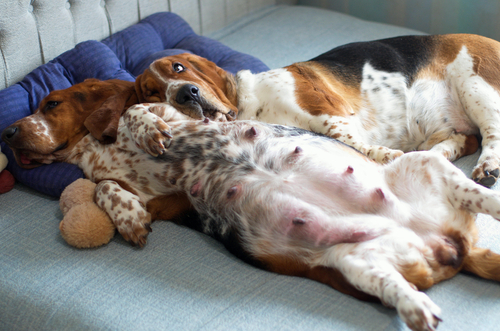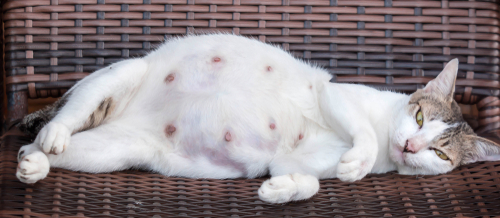The cold weather and unique hazards at this time of the year can pose serious risks to the well-being of our pets. Read our handy guide to the most common winter hazards for dogs and cats and what to do if your pet is at risk.
Winter hazards for dogs and cats – foods
There are many foods associated with winter and Christmas that pose a risk to our pets. Some are more serious than others.
- Christmas cake, Christmas pudding, and mince pies are all extremely toxic to dogs and cats. This is because they contain grapes or a dried version of them (raisins/sultanas/currents etc). Even in small amounts, they can cause severe poisoning and lead to kidney failure.
- Chocolate is everywhere at this time of the year – inside advent calendars, lying around the house in selection boxes, and even wrapped up under the Christmas tree. Chocolate is toxic to cats and dogs. The severity depends on the size of your pet (the smaller, the more at risk) and the type of chocolate (darker chocolate is more harmful).
- Nuts, including macadamia, cashew, and pistachio, can all cause illness in your pets. Though most effects tend to be mild, they should be completely avoided. Macadamias can cause more serious symptoms than other types of nuts.
- Sugar-free sweets that contain artificial sweeteners can be harmful to pets. Xylitol is the most problematic, as it causes the blood sugar levels to drop dangerously low. This seems to be more of a problem in dogs compared to cats. Other artificial sweeteners can cause symptoms if eaten in large amounts.
- Other common hazards include turkey bones (can cause blockages), onions and garlic (toxic in large amounts), mouldy food or blue cheese (contain fungus that can be dangerous).
Speak to a vet immediately if your dog or cat eats something they shouldn’t, especially if it involves raisins or chocolate. If you catch it quickly (usually within 2 hours), then your vet will be able to make your pet vomit to reduce the chances of toxic effects.
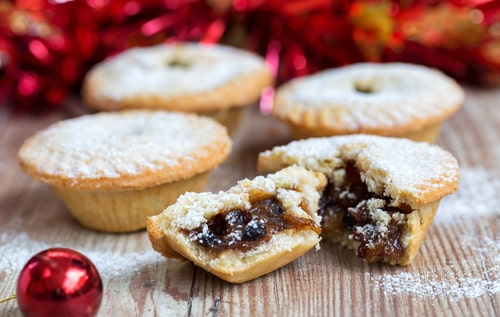
Winter hazards for dogs and cats – liquids
Alcohol can be dangerous to dogs and cats.
- This is because it contains ethanol (which is also in mouthwash, hand sanitizers, and other products). Most commonly, alcohol poisoning happens from drinks left unattended, especially those containing cream, which can be very appetising to pets.
- The amount of alcohol that is poisonous to dogs and cats depends on the strength of the drink and weight of your pet. Symptoms can range from mild, such as vomiting and lethargy, to severe, even coma and death.
Antifreeze (which usually contains ethylene glycol) is used in cars to stop the water from freezing, and it’s extremely toxic to dogs and cats.
- It tastes sweet, which is why our pets tend to drink it. It can be found spilled on driveways or in garages. Windscreen de-icer, brake fluid, and other products can also contain ethylene glycol.
- Even a small amount, equivalent to a teaspoon, can lead to severe symptoms and kidney failure. Symptoms of anti-freeze poisoning in dogs and cats include drooling, excessive thirst, incoordination, and seizures.
We recommend speaking to a vet immediately if your pet ingests alcohol or ethylene glycol, as these can both cause severe symptoms and, sadly, can even be fatal.

Winter hazards for dogs and cats – household items
Christmas decorations
- Christmas trees are usually pine, spruce, fir, or plastic, and these are non-toxic to dogs and cats. The needles can cause some tummy irritation or a blockage if eaten in large amounts, and may cause mild irritation of the gums and paws.
- Potpourri in liquid form and essential oils can be harmful to dogs and cats. If only a small amount is ingested, symptoms are usually mild, but larger amounts or high concentrations can lead to more severe problems and burns. They can also cause skin irritation if they come into contact that way.
- Be careful of using scented candles at home if you have pets. These can irritate their eyes, nose, and throat and cause coughing and sneezing. Especially in asthmatic dogs and cats. Ingestion of candles can also cause problems, but this does not happen often.
- Wrapping paper, ribbons, and bows are not toxic to dogs and cats but can cause irritation or even a blockage in the gut.
Toys
- Though most toys are not poisonous to dogs and cats, they carry a risk of getting stuck in the tummy if swallowed.
- Silica gel packets are used to reduce moisture in boxes of shoes and other products. While silica gel is non-toxic to dogs and cats, packets containing charcoal or iron can be.
- Ingestion of batteries can pose several risks to dogs and cats. Firstly, a blockage of the gut. Secondly, batteries contain a caustic substance. If the batteries are chewed and the substance leaks out, it can cause burns.
Speak to a vet immediately if your pet eats something they shouldn’t. Our Joii vets are available 24 hours a day for advice.
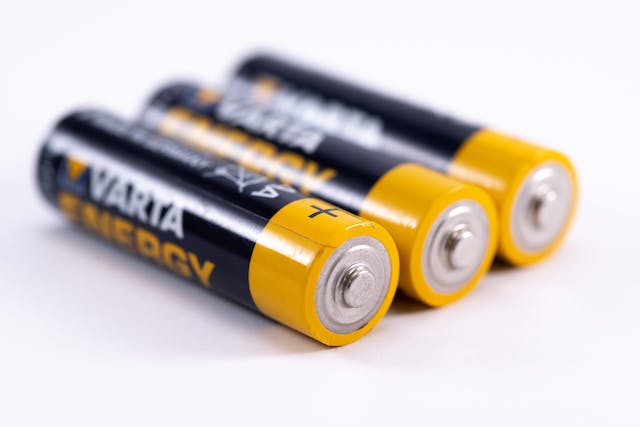
Winter hazards for dogs and cats – plants
Mistletoe, ivy, and holly
- These plants are all mildly toxic to cats and dogs. Symptoms include vomiting and diarrhoea. The development of symptoms depends on how much is eaten; usually, small amounts have minimal side effects.
Amaryllis
- Is a popular plant that is mildly toxic to dogs and cats. It can cause drooling and vomiting and all parts of the plant contain toxin.
Snowdrops
- Usually bloom from January to March. All parts of the plant are dangerous to dogs and cats, especially the bulbs. Symptoms of poisoning include tummy upsets but can be more severe if a large quantity is eaten.
There are many plants that can be harmful to cats and dogs, find out more in our poisonous plant article. Speak to a vet immediately if your pet eats any harmful or unknown plants. Your vet may recommend calling the pet poison line if your pet comes in contact with a poisonous plant.

Winter hazards for dogs and cats – weather
When the weather is extremely cold (close to or below freezing), dogs and cats are also at risk of frostbite or hypothermia.
- Smaller breeds are more at risk. Try to limit walks during extreme weather. A warm jumper or jacket can help your pet stay warm.
- Heavy rain or snow can affect cats’ ability to find their way home in the dark. Find out more about keeping your cat safe in the dark.
And with the freezing weather, grit or rock salt used on the roads can be toxic to dogs and cats.
- Rock salt or grit can stick to their paws and fur, and when licked off and swallowed, it can make them ill. It can also cause damage to their paws.
- Make sure to wipe your pet’s paws and brush off their fur when they come inside in winter.
Fireworks are common during the winter months, especially in the week of New Year celebrations.
- The loud noises and sudden bright lights can be extremely stressful for dogs and cats.
- Signs of stress in dogs and cats include shaking, restlessness, panting, and destructive behaviour.
- There are many different things you can do at home to help dogs and cats with firework anxiety, find out more in our firework article.
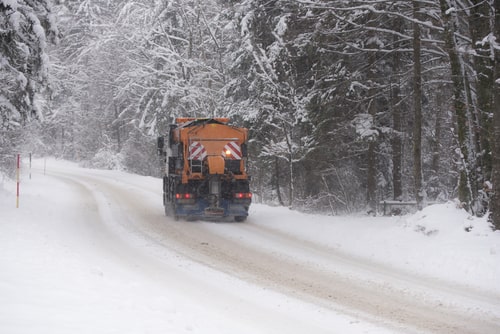
Behaviour and skin problems during the winter months
- Though parasites are less common in the colder months, they are still present, especially fleas. Keep your pet up to date with parasite preventatives all year round.
- Some dogs and cats shed more hair or moult during certain times of the year. This is often completely normal. Abnormal signs to look out for include patches of hair thinning or loss, red skin, rashes, itchiness, or matted hair.
- Because of the colder and wetter weather, our dogs and cats might get less exercise over the winter months. This can lead to them putting on weight. Make sure to monitor your pet’s weight regularly and speak to a vet if it seems to be suddenly changing.
- With the worsening weather, we also see behaviour changes, such as eating more or less than normal, becoming more cuddly, or seeming depressed. This can be due to stress of routine changes (less exercise) or more people visiting. Find out some tips to prevent this in our stress article.
- Cats, in particular, tend to sleep more often in winter. Something that may surprise you is that female cats often don’t go into heat in the winter. So it’s less likely for them to breed and get pregnant, but it’s not impossible!
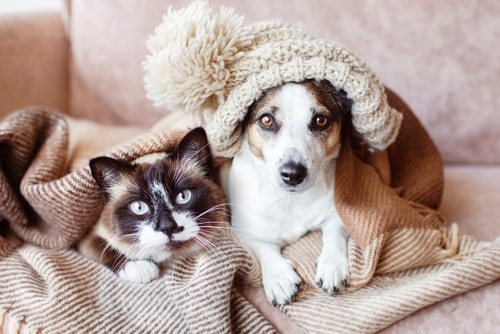
Winter can be a magical time, but it also comes with its own set of challenges for our pets. By being aware of the potential hazards, you can ensure that your dogs and cats stay safe, warm, and happy throughout the winter period. From knowing what foods are toxic to how to keep a consistent routine to prevent stress, a little extra attention goes a long way towards ensuring a joyful and hazard-free winter for your furry companions.
Our Joii vets are available online for advice 24 hours a day, every day, even over the festive season. Call us now if you have any questions.

